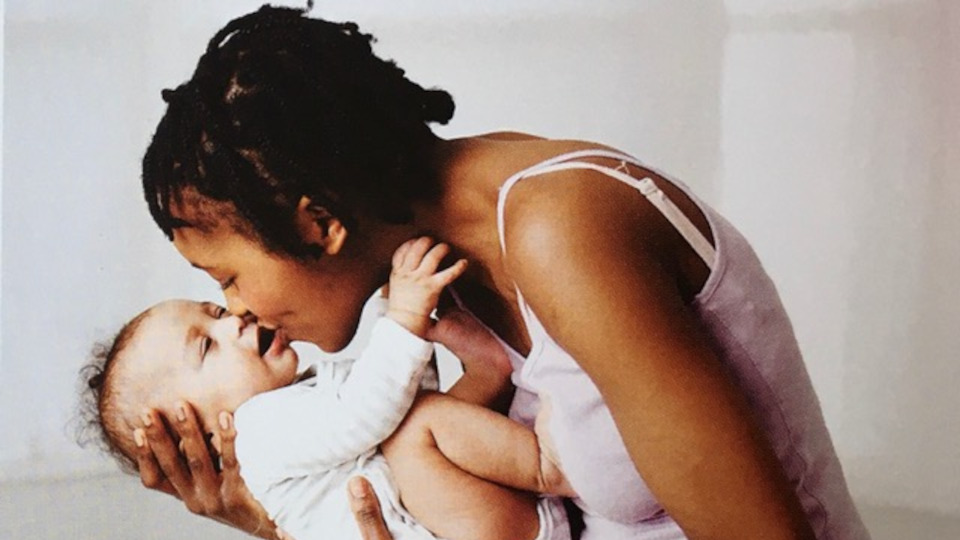
#BabyCommunicationWeek23 #AmazedByBabies #brazeltonuk
Friday – Brazelton Baby Communication Week: Baby Care as Unconditional Love
Parenting from a yoga perspective: a school of unconditional love. There is always more to learn, understand and give. Rewards abound along the way.
The nature/nurture, genes/environment debates have evolved with neuroscientific research and epigenetics yet remain inconclusive. Identical twins express different genes in the same family setting. Thankfully milestones are less rigidly set, with more flexibility about when and how babies negotiate their relationship to gravity in their first year.
From birth, even with pre-term babies, ‘positive touch’ and interactive play can help parents to elucidate whether their babies are asking for containment (swaddling, baby wearing, gentle handling) or free movement (all body moves, blanket kicking, strong pedalling). This may change at some points, but basic patterns are likely to last. Focused interaction in Infant massage and yoga also makes it possible to identify newborns’ dominant sensory orientation, their likes, and dislikes. Some babies respond more to human voices, others to visual stimuli. In eagerness to follow videos and books, caregivers may not notice that the sensory stimulation they offer is either too strong -frightening- or too weak -boring. Like Goldilocks, infants recognise what’s ‘just right’ for them.
Push & Counterpush
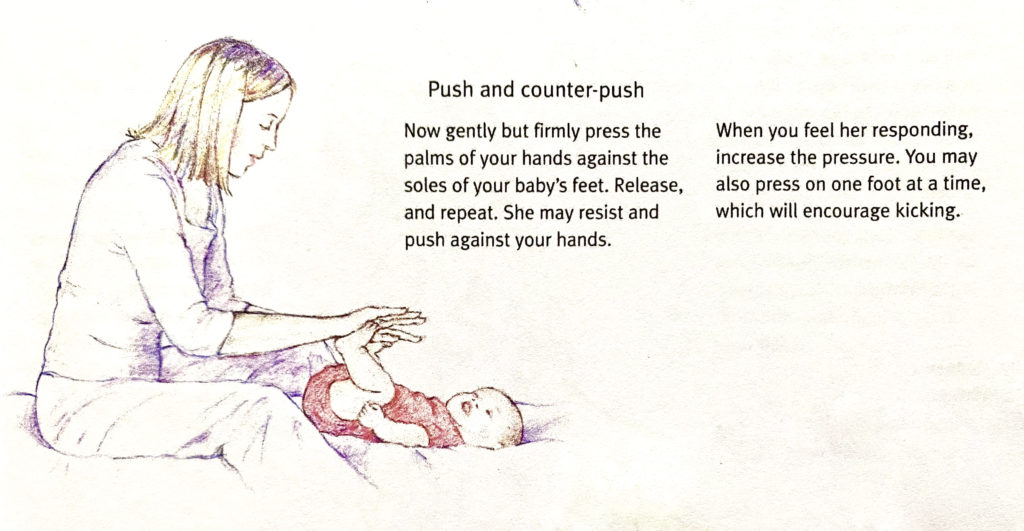
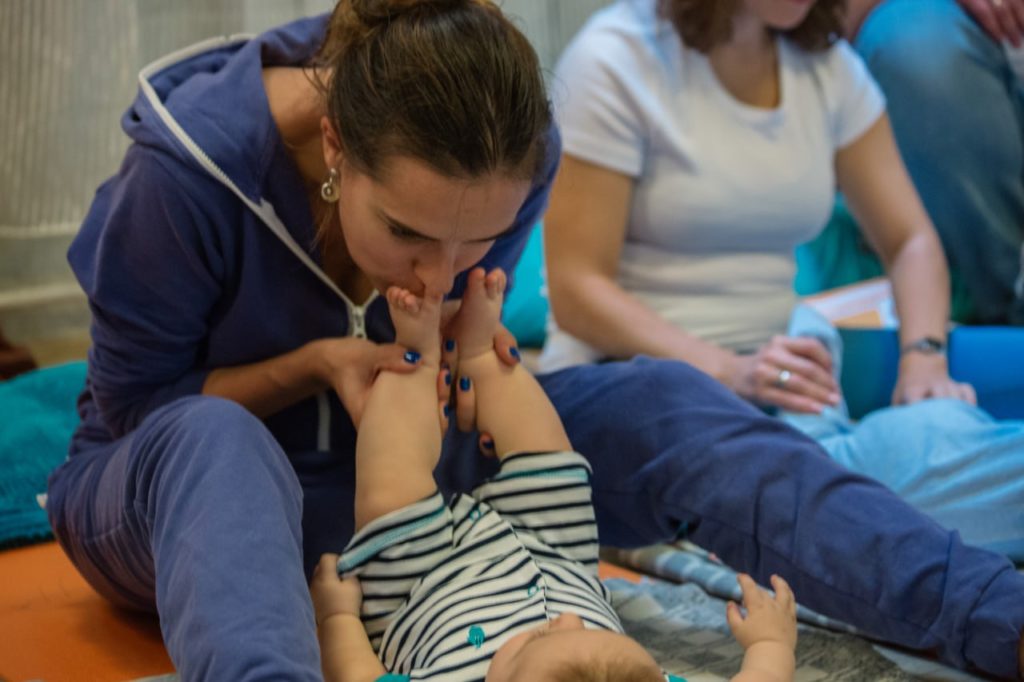
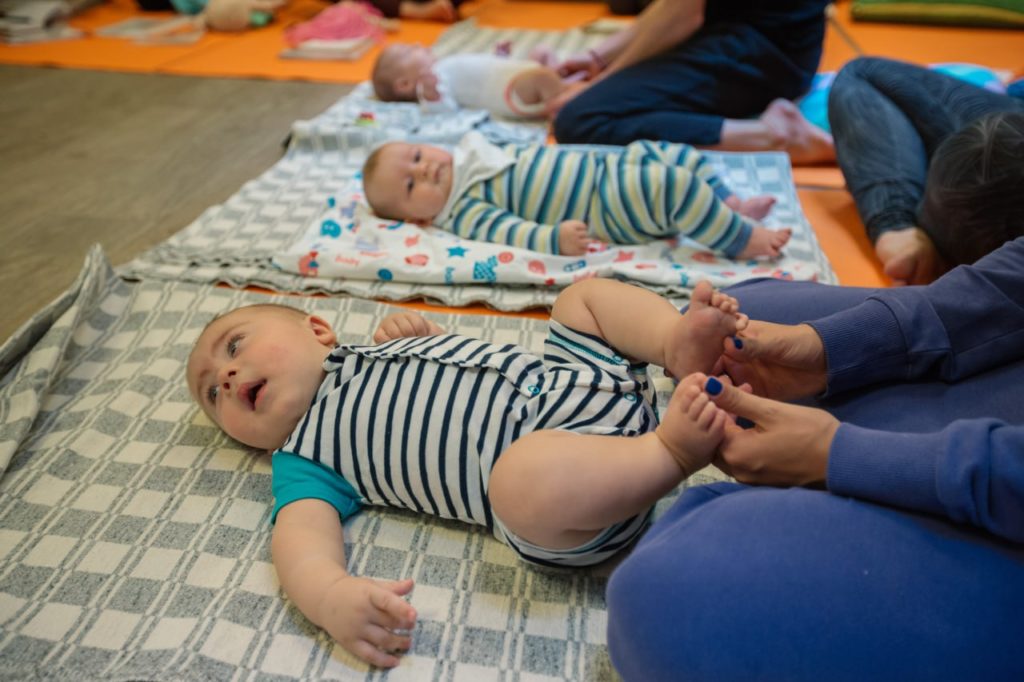
Do babies fancy a foot massage or invite a vigorous game of push-counter-push with their strong kicks? (There can be a delay in the counter-push response. It may take successive tries over a few days for a game to develop).
Two yoga principles can help parents to the ‘science of (early) parenting’.
The first principle is acceptance, inevitably coupled with self-acceptance. The postpartum is a time of fear to fail, uncertainty, and confusion. Births are rarely perfect, and ‘dream babies’ a deflated illusion. Even in the throes of postnatal depression, let’s turn to the power of embodied practice to reflect inaccessible truths. Simple gestures can express a connection that’s not yet there. With repetition, connection arises. Babies feel welcome fully as individuals, whatever the circumstances of their parents’ births or their own.
The principle of non-violence implies finding one’s own anchor to preserve inner peace even when challenged to the extreme by a baby’s incomprehensible demands.
As the Scottish old lullaby goes, there are days when mothers would willingly sell their bairns for a pound of tea. Acknowledging that this is a fact of life, not all mothers can find it in them to sing but the mudra of the elephant’s strength (Ganesha mudra) can help them access inner strength.
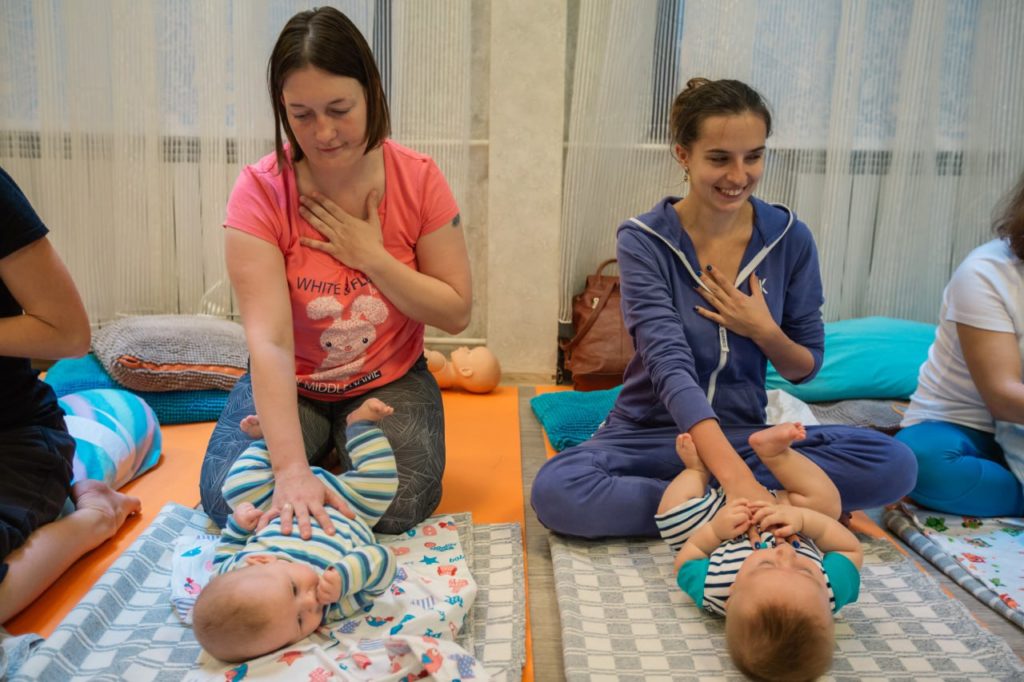
Heart to Baby
Touch Meditation
Ganesha Mudra
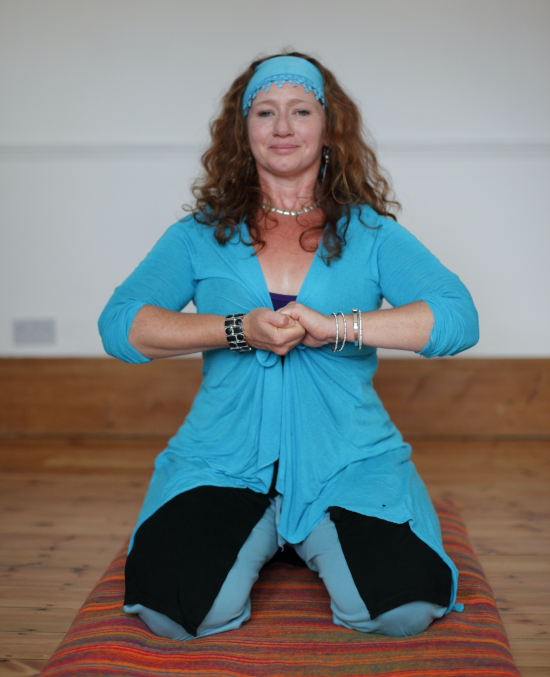
Comparison and fear not to do things right are a bane of early parenthood. Post Covid, circles of parents and babies in communities can help develop awareness of how both different and similar babies are across cultures. In Parent/baby yoga groups, watching other parents and receiving feedback provide antidotes to isolation. Face to face encounters with other babies matter for early awareness of othersand for parents to bravely re-affirm their commitment to ‘their’ babies when they go back home.
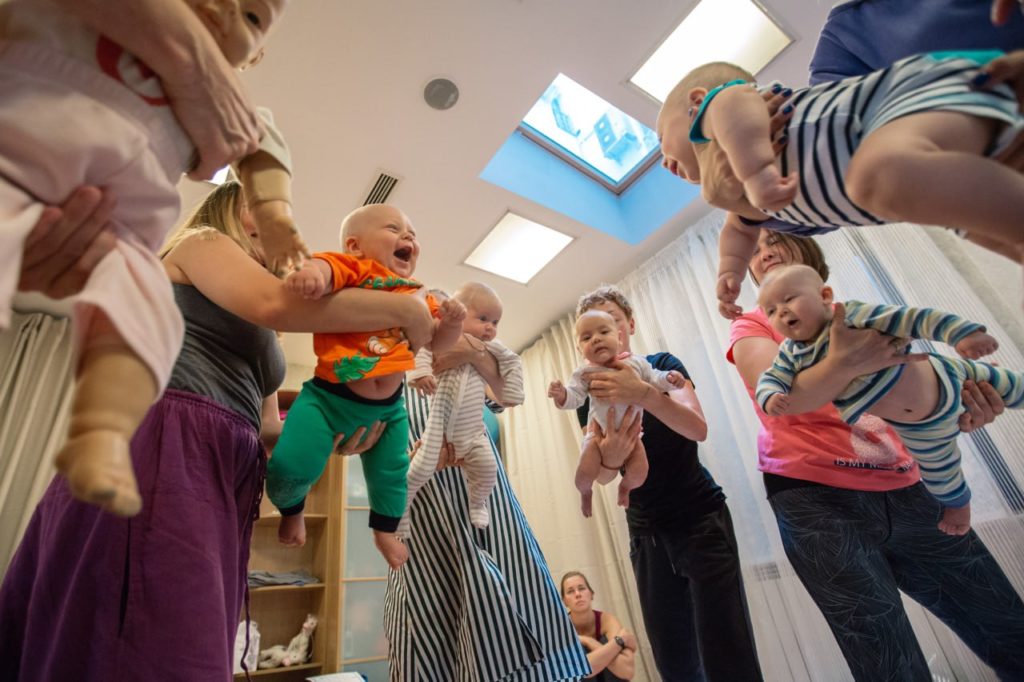
Baby Yoga Circle
1 Bond, Cherry 2003. Positive Touch and Massage in the Neonatal Unit: British approach. Seminars in
Neonatology 7(6):477-86.
2 The Touchpoints identified by Berry Brazelton are invaluable for caregivers throughout the early years.
www.brazeltontouchpoints.org
3 Margot Sunderland. 2016. The Science of Parenting. Dorling Kindersley.
4 Tara Brach 2021. Trusting the Gold: Uncovering your Natural Goodness. Sounds True Publishers.